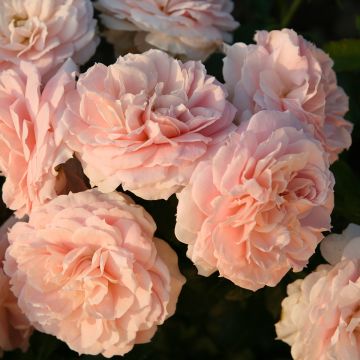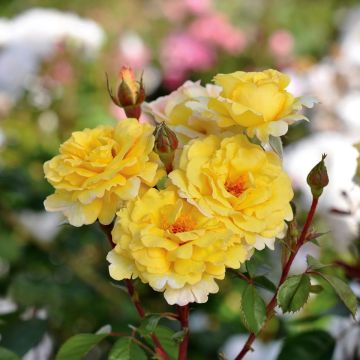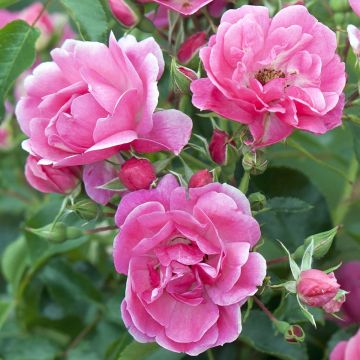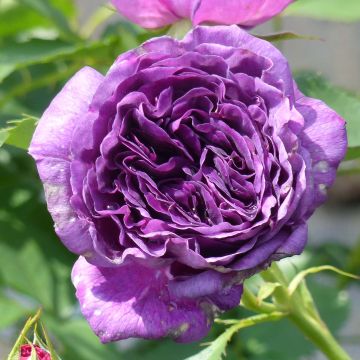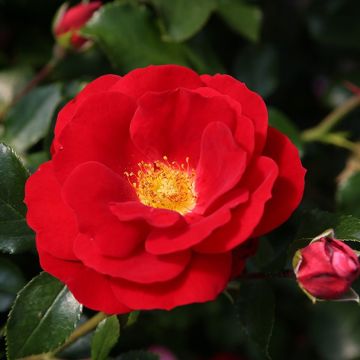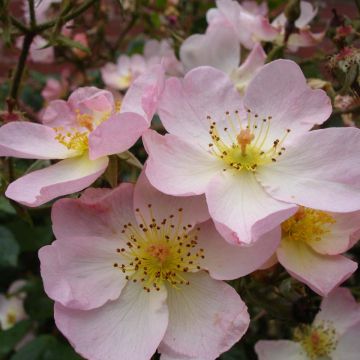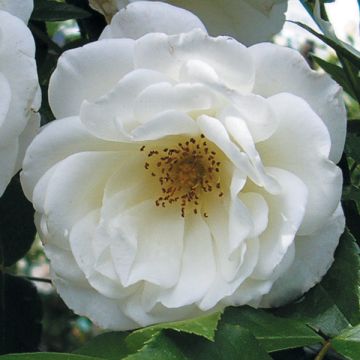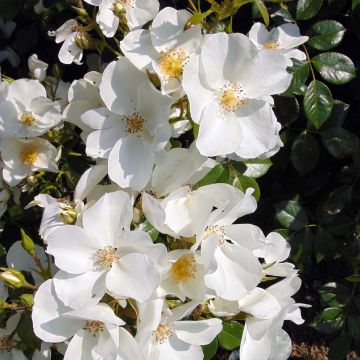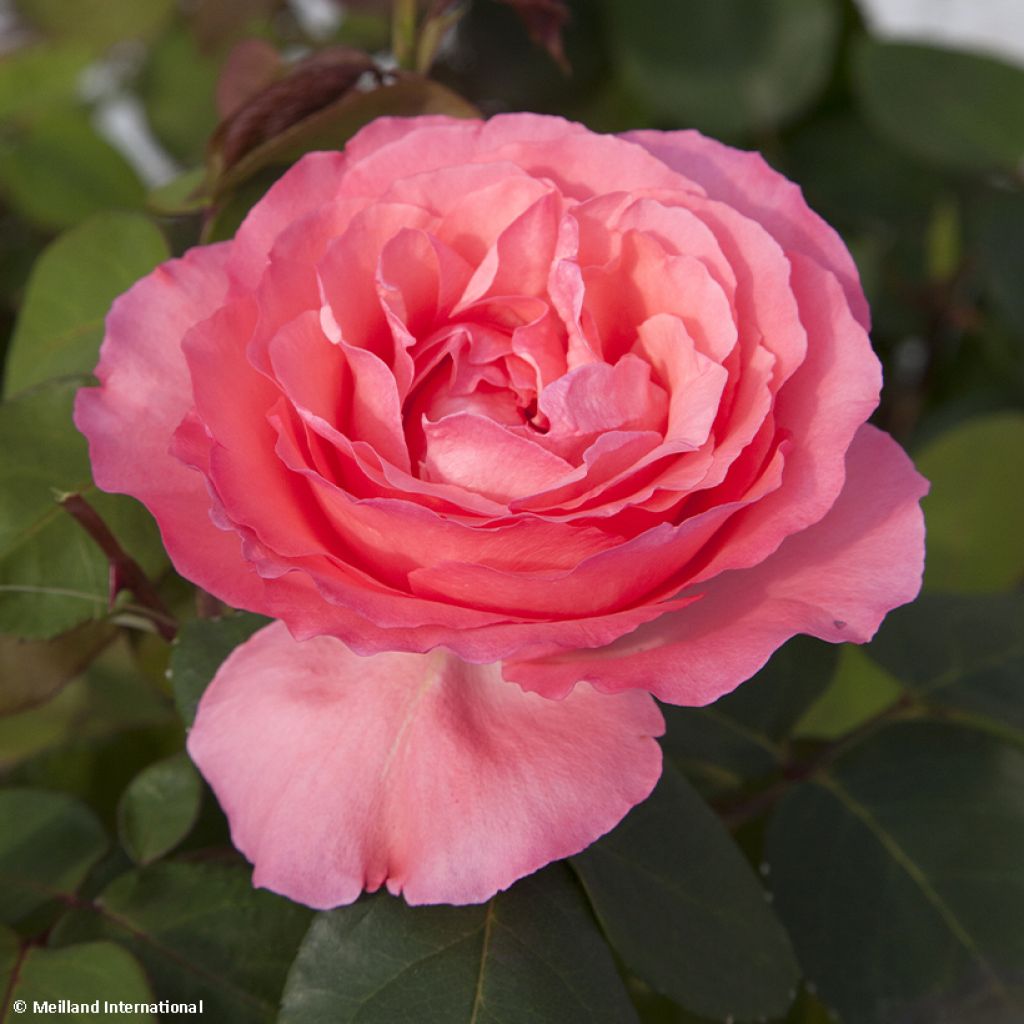

Rosier à grandes fleurs Panthere Rose 'Meicapinal'
Rosa Pink Panther
Rosa Panthere Rose
Rose [Pink Panther]
This item cannot be shipped to the selected country
Delivery charge from €5.90
Delivery charge from €5.90
Delivery charge from €5.90
More information
Schedule delivery date,
and select date in basket
This plant carries a 24 months recovery warranty
More information
We guarantee the quality of our plants for a full growing cycle, and will replace at our expense any plant that fails to recover under normal climatic and planting conditions.
From €5.90 for pickup delivery and €6.90 for home delivery
Express home delivery from €8.90.
From €5.90 for pickup delivery and €6.90 for home delivery
Express home delivery from €8.90.
From €5.90 for pickup delivery and €6.90 for home delivery
Express home delivery from €8.90.
Does this plant fit my garden?
Set up your Plantfit profile →
Description
Rosa Pink Panther is a vigorous and ramified bush. It produces an abundance of flowers. This beautiful rose has won many international competitions for its numerous qualities. Its large roses open with the perfect shape of hybrid tea roses, with their multiple petals gracefully unfurling. Their elegant colour of a bright and pure azalea-pink becomes a more intense pink at the margin in cool and humid weather, adding depth to the corolla. Their light fragrance is characterised by fruity notes. It blooms continuously from May until the first frosts. Its beautiful semi-matte foliage is resistant to diseases. It is an easy and generous rose within reach of beginner gardeners. It produces excellent cut flowers.
Rosa Pink Panther is a modern shrub rose related to hybrid tea roses, introduced in 1982 by the Meilland house. This rose has an impressive list of awards: Silver Medal Le Roeulx 1981, Silver Medal Geneva 1981, Silver Medal Monza 1981, Silver Medal Saverne 1981, Gold Medal The Hague 1981, Perfume Award The Hague 1982, ADR 1982, Durban Certificate 1985, Silver Medal The Hague 1988. It is a fast-growing, well-branched shrub, with an upright habit, reaching about 85 cm (34in) in height and 50 cm (20in) in width. It produces strong, thorny branches that bear elegant foliage of medium green, semi-matte leaves. From May-June to October, spiral buds appear that open into perfectly shaped roses, composed of 50 to 55 petals, and measuring 11 to 12cm (4 to 5in) in diameter. They are solitary or grouped in 3 to 5 blooms, appearing at the end of long shoots from the current year or by those that emerge from 2-year-old stems. It will bloom continuously if faded blooms are regularly removed and the soil doesn't dry out too much.
With its perfect pink flowers, Rosa Pink Panther is an elegant treasure for borders and bouquets. With a moderate size and dense foliage, it is ideal for planting as a small hedge or in a group of 3 plants, as well as for growing in a large pot. It fits well in borders with low-growing shrubs that flower in summer or autumn, or mixed with light perennials and annuals. It will look wonderful in front of a boxwood or yew screen, or surrounded by a miniature hedge or a carefully organised maze, as in Italian or French gardens. Above all, it is a generous rose, perfect for pairing, for example, with a clematis with small white flowers like 'Mrs Robert Brydon', and more generally with herbaceous clematis. It also looks sublime with perennial geraniums and catmints.
Report an error about the product description
Rosa Pink Panther in pictures
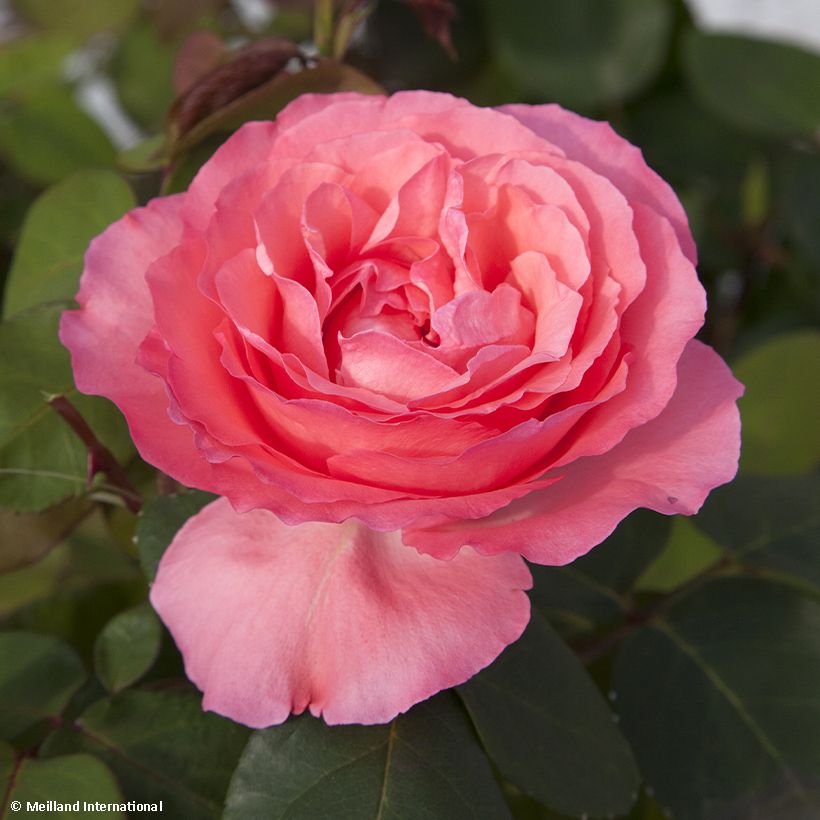

Plant habit
Flowering
Foliage
Botanical data
Rosa
Panthere Rose
Rosaceae
Rose [Pink Panther]
Cultivar or hybrid
Other Large-flower tea Roses
Planting and care
Plant in a sunny location. Modern roses are tolerant, but do not like excessive limestone. They will adapt to any garden as long as the soil is well worked, not too heavy, and sufficiently rich. To plant your rose, work the soil by crumbling it and add fertiliser to the bottom of the planting hole (dried blood or dehydrated horn, for example). Water generously after planting to remove any air pockets. Water regularly for a few weeks to facilitate root growth. Provide your rose with special rose fertiliser that stimulates flowering.
Roses are often stained or unsightly at the end of summer, but this will not hinder their development. These spots are a natural phenomenon and will not harm the rose.
Planting period
Intended location
Care
-
, onOrder confirmed
Reply from on Promesse de fleurs
Roses by purpose
Haven't found what you were looking for?
Hardiness is the lowest winter temperature a plant can endure without suffering serious damage or even dying. However, hardiness is affected by location (a sheltered area, such as a patio), protection (winter cover) and soil type (hardiness is improved by well-drained soil).

Photo Sharing Terms & Conditions
In order to encourage gardeners to interact and share their experiences, Promesse de fleurs offers various media enabling content to be uploaded onto its Site - in particular via the ‘Photo sharing’ module.
The User agrees to refrain from:
- Posting any content that is illegal, prejudicial, insulting, racist, inciteful to hatred, revisionist, contrary to public decency, that infringes on privacy or on the privacy rights of third parties, in particular the publicity rights of persons and goods, intellectual property rights, or the right to privacy.
- Submitting content on behalf of a third party;
- Impersonate the identity of a third party and/or publish any personal information about a third party;
In general, the User undertakes to refrain from any unethical behaviour.
All Content (in particular text, comments, files, images, photos, videos, creative works, etc.), which may be subject to property or intellectual property rights, image or other private rights, shall remain the property of the User, subject to the limited rights granted by the terms of the licence granted by Promesse de fleurs as stated below. Users are at liberty to publish or not to publish such Content on the Site, notably via the ‘Photo Sharing’ facility, and accept that this Content shall be made public and freely accessible, notably on the Internet.
Users further acknowledge, undertake to have ,and guarantee that they hold all necessary rights and permissions to publish such material on the Site, in particular with regard to the legislation in force pertaining to any privacy, property, intellectual property, image, or contractual rights, or rights of any other nature. By publishing such Content on the Site, Users acknowledge accepting full liability as publishers of the Content within the meaning of the law, and grant Promesse de fleurs, free of charge, an inclusive, worldwide licence for the said Content for the entire duration of its publication, including all reproduction, representation, up/downloading, displaying, performing, transmission, and storage rights.
Users also grant permission for their name to be linked to the Content and accept that this link may not always be made available.
By engaging in posting material, Users consent to their Content becoming automatically accessible on the Internet, in particular on other sites and/or blogs and/or web pages of the Promesse de fleurs site, including in particular social pages and the Promesse de fleurs catalogue.
Users may secure the removal of entrusted content free of charge by issuing a simple request via our contact form.
The flowering period indicated on our website applies to countries and regions located in USDA zone 8 (France, the United Kingdom, Ireland, the Netherlands, etc.)
It will vary according to where you live:
- In zones 9 to 10 (Italy, Spain, Greece, etc.), flowering will occur about 2 to 4 weeks earlier.
- In zones 6 to 7 (Germany, Poland, Slovenia, and lower mountainous regions), flowering will be delayed by 2 to 3 weeks.
- In zone 5 (Central Europe, Scandinavia), blooming will be delayed by 3 to 5 weeks.
In temperate climates, pruning of spring-flowering shrubs (forsythia, spireas, etc.) should be done just after flowering.
Pruning of summer-flowering shrubs (Indian Lilac, Perovskia, etc.) can be done in winter or spring.
In cold regions as well as with frost-sensitive plants, avoid pruning too early when severe frosts may still occur.
The planting period indicated on our website applies to countries and regions located in USDA zone 8 (France, United Kingdom, Ireland, Netherlands).
It will vary according to where you live:
- In Mediterranean zones (Marseille, Madrid, Milan, etc.), autumn and winter are the best planting periods.
- In continental zones (Strasbourg, Munich, Vienna, etc.), delay planting by 2 to 3 weeks in spring and bring it forward by 2 to 4 weeks in autumn.
- In mountainous regions (the Alps, Pyrenees, Carpathians, etc.), it is best to plant in late spring (May-June) or late summer (August-September).
The harvesting period indicated on our website applies to countries and regions in USDA zone 8 (France, England, Ireland, the Netherlands).
In colder areas (Scandinavia, Poland, Austria...) fruit and vegetable harvests are likely to be delayed by 3-4 weeks.
In warmer areas (Italy, Spain, Greece, etc.), harvesting will probably take place earlier, depending on weather conditions.
The sowing periods indicated on our website apply to countries and regions within USDA Zone 8 (France, UK, Ireland, Netherlands).
In colder areas (Scandinavia, Poland, Austria...), delay any outdoor sowing by 3-4 weeks, or sow under glass.
In warmer climes (Italy, Spain, Greece, etc.), bring outdoor sowing forward by a few weeks.



































